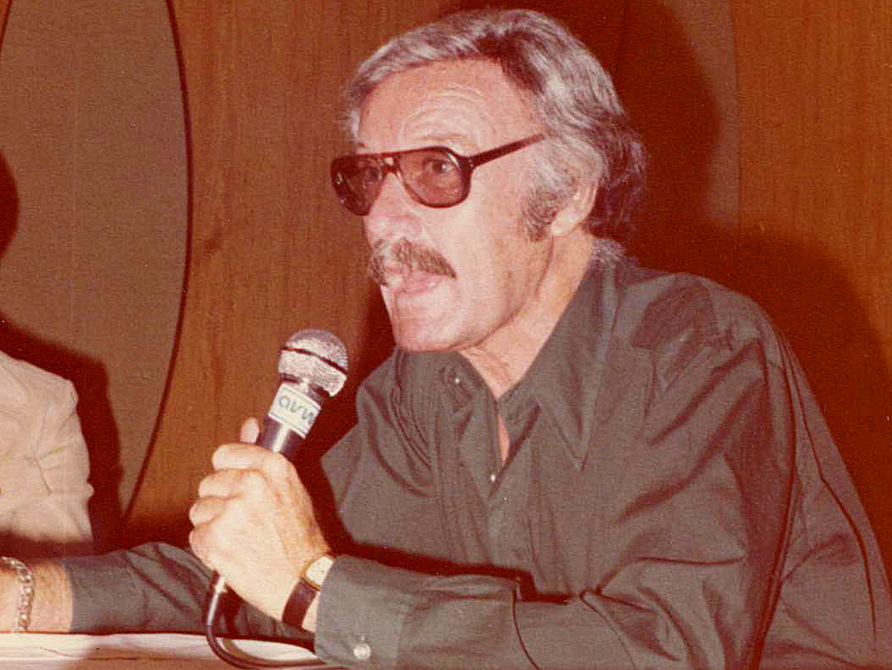Stan “The Man” Lee passed away on November 12 of last year at the age of 94. Lee was for years the main writer of Marvel comics, and he created, or helped create, many of the most iconic characters in comics, including Spiderman, the Hulk, Iron Man, X-Men, Thor, and Captain America.
Lee and his team at Marvel were the first to give their heroes world problems. Peter Parker may have been Spiderman, but when not swinging on his web, he faces typical teenage problems. Lee’s characters also clashed with authority figures, including the government. While Superman and Batman were still supporting and being supported by police, the military, and the government, Spiderman was viewed as a vigilante. The Hulk was deemed a threat to security and pursued by the military, and the X-Men were hated and feared by government as well as the general population.
Lee’s skepticism toward government could have been due to his experience standing up to a politically-generated anti-comic book hysteria. The hysteria was generated by The Seduction of the Innocent, a best-seller by psychiatrist Fredric Wertham. Wertham claimed comic books were turning children into juvenile delinquents and even fascists. In response to the book, Congress held hearings and the comic industry responded by creating a Comics Code Authority, to ensure the youth of America would not turn into goose- stepping juvenile delinquents.
Lee and the other comic creators largely ignored the code. They were already aware that their readership consisted of young people and did not need to be told by an outside code to avoid sex and excessive or graphic violence. Here is an example where doing the right thing coincides with doing the profitable thing. Had Marvel and other comic book companies abdicated their responsibility to their younger readers , those young readers would soon be reading something besides comic books — if not at the direction of their parents, then through their own choice.
That is not to say that Lee and his team shied away from social commentary. During the sixties, Marvel characters addressed some of the most critical issues of the day, especially civil rights and the need for those with great power to wield it responsibly.
Spiderman’s social conscience and popularity with young people caught the eye of the Department of Health, Education, and Welfare (the original name for what became known as the Department of Health and Human Services after education got its own Department). The agency wrote Lee a letter suggesting he feature the consequences of drug abuse in a future issue of Spiderman.
Lee decided it was a good idea and “….wove the theme into the plot without preaching, because if kids think that you’re lecturing them, they won’t listen. You have to entertain them while you’re teaching.”
You would think the code would have jumped for joy at the thought of a comic book warning young people about the evils of drug use. But no, the storylines broke the up-till-then unspoken rule against drug use. Stan Lee and Marvel faced a dilemma — either comply with the code and not publish what they thought was an important story or defy the code and risk alienating part of their audience.
They decided to publish the story without the code seal of approval on the cover. The story was well-received, and few noticed or cared that it was the first Marvel book published since the code’s creation without the code’s seal of approval. As a result, the code broke ones its rules against mentioning drug use, and other comic book publishers began addressing drug use.
Now some might say that by responding favorably to the government’s request, Lee was supporting the drug war and caving into government pressure. But Lee was not pressured by the government, and unlike with other instances where TV shows portrayed pro-drug war, pro-ObamaCare , or pro-war messages, the government had no say over the content of the story. The story was not pro-drug war but anti-drug use, and was consistent with the position of anti-drug war libertarians like Campaign for Liberty Chairman Ron Paul and Murray Rothbard.
Others may object to saying Lee was fighting censorship since the comics code was a private organization with no government power. The code was created to appease politicians who were looking for cheap political points by demonizing comic books, so the code was a creation of politics, not the market.
Stan Lee leaves a legacy that’s has impacted the lives of millions of Americans and shaped American popular culture.
Nuff Said
Excelsior!
For more on this listen to Remy’s The Legend of Stan Lee.
Here is every Stan Lee cameo in Marvel movies.







